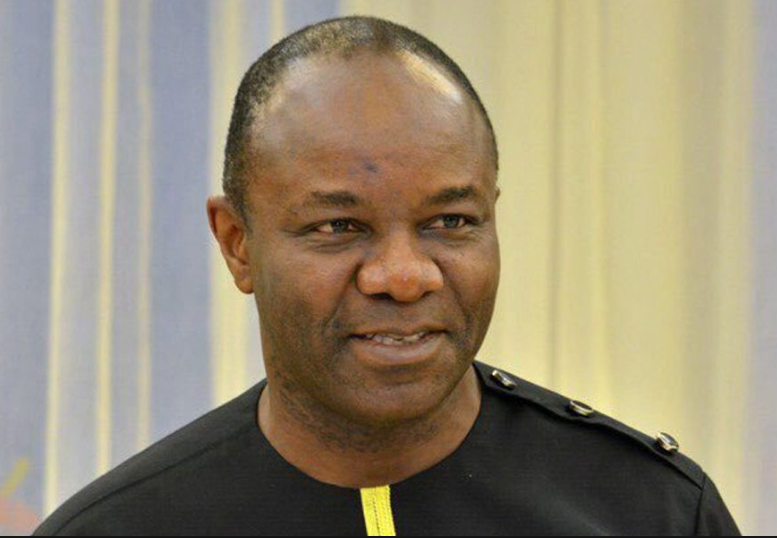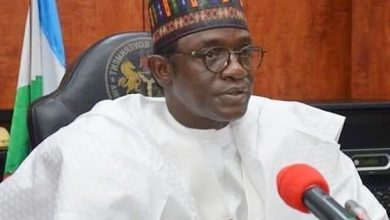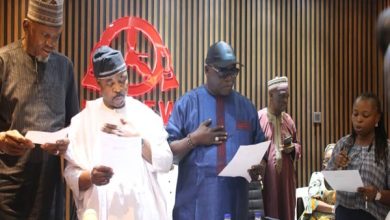Ministry of Petroleum: Ibe Kachikwu’s impressive turnaround at a glance

Who would have thought that Dr Emmanuel Ibe Kachikwu, Nigeria’s Minister of State for Petroleum Resources would achieve success at the troubled ministry?
His initiative -Short and Medium Term Priorities also known as 7 Big Wins (2015-2019)’ proved to be the magic wand.
With clear focus on seven thematic areas- Policy and Regulation, national oil policy, national gas policy, downstream policy, fiscal reform policy, petroleum industry reform bill, business environment and investment drive; Accelerated Income Streams, upstream, midstream, downstream; Gas Revolution, gas infrastructure development, gas revolution projects, promotion of domestic ultilisation of LPG and CNG, reduction of gas flaring, gas commercial framework implementation and gas to power, it was a clear attempt to grow the oil and gas industry to enable it serve Nigerians better.
In four years, Kachikwu transformed Nigeria from an oil-based economy to gas-based through the development of robust gas infrastructure that ensured improved power availability and drove the establishment of gas-based industries.
Under Kachikwu’s highly strategic roadmap, the government shift the focus from government built infrastructure to investor built infrastructure.
Specifically, the government provided incentives for the building of infrastructure to supply gas from the Eastern parts of Nigeria to commercial demand centers in the Western and Northern parts.
A key short-term objective was the introduction of a regulatory framework for commercial pipeline investment with clear tariff methodology.
The focus on gas also involved the development of gas-based industries and the utilisation of gas hubs near central processing facilities (CPF). These CPFs were a key part of the Gas Master plan but are yet to be built.
On the upstream side, the roadmap reviewed the current legal and regulatory framework on gas flaring and implement stranded gas development projects including floating LNG, as well as establish a framework for the use of modular gas processing and utilisation systems to allow third party off-take from the wellhead. The government also encouraged the fulfillment of domestic gas obligations (DSO) by moving from a sanction-based model to an incentive-based model.
Exposed!! Popular Abuja doctor revealed how men can naturally and permanently cure poor erection, quick ejaculation, small and shameful manhood without side effects. Even if you are hypertensive or diabetic . Stop the use of hard drugs for sex!! It kills!
There was also Transparency and Efficiency, transparency, capacity building, institutional strengthening and governance model, ICT and automation and
Performance Management, which ensured stakeholders management and international coordination, communication strategy, stakeholder relationship building and management, international energy relations and bilateral cooperation.
Working in partnership with several international organisations such as FOSTER, European Union (EU), DFID, the Kachikwu led Ministry of Petroleum Resources, recorded commendable successes in actualising most of the policy directions.
For instance, the key element of National Oil Policy already contained in the gazette, was to move Nigeria beyond crude oil exports into value-adding activities such as refining and petrochemical industries, while the National Gas Policy was designed to address the continued wastage of gas resources and instead maximize the country’s gas resources.
Against this background, Flare Gas (Prevention of Waste and Pollution) Regulation 2018 was approved and gazetted. Another interesting aspect of this policy was that it would reduce the environmental and social impact caused by flaring of natural gas. Commercial issues emanating between consumers of gas from the textile industries and downstream suppliers and local distribution companies (LDCs) were equally resolved through the Gas Pricing Framework for Textile Industries.
Also, in their thirst for radical reforms in the petroleum sector, the Ministry of Petroleum and its agencies collaborated very closely with the National Assembly on the Petroleum Industry Bill.
The ministry did not also relent its efforts in working with the federal lawmakers to facilitate the passage of the four bills that constitute the PIB. They are Petroleum Industry Governance Bill, Petroleum Industry Administration Bill, Petroleum Industry Fiscal Bill and the Petroleum Industry Host Communities Bill.
As part of efforts focused on boosting the business environment and improving investment in the oil and gas sector, the shift towards improved governance and transparency, renewed approach to addressing militancy in the Niger Delta region where Nigeria’s oil reserves are situated, deregulation of the of the downstream sector as well as policy, fiscal and regulatory reforms have been encouraging potential investors into the industry with healthy and diversified returns.
Some of the outlined initiatives designed to boost the business environment were initiating capital investments into midstream and downstream assets such as pipelines, depots and refineries; review of government equity in Joint Ventures (JVs), conducting early lease renewals, ensuring payments of outstanding royalties by oil companies, re-finance NNPC loans, implement target borrowing, restructure JVs to IJVs and review and update all fiscal type guidelines to bring them in line with best practices.
The establishment of mini/modular refineries is a concept that ultimately actualized the set goal of moving Nigeria beyond crude oil export and into the realm of adding value.
Added to that, the series of visits to the region by Vice President (Prof.) Yemi Osinbajo (SAN), which were facilitated by Dr. Kachikwu, went a long way in re-affirming government’s commitment to walk its talk in the region.
These efforts have helped to address militancy, eliminate bunkering and illegal pipeline tapping of crude oil as well as increase government earnings.
The above, coupled with a deliberate effort targeted at re-organising and restructuring the NNPC into a focused accountable and transparent organisation are right steps in the right direction.
Again, there has been deployment of new organisational structure corporate wide, emplacement of new and workable business models, initiation and consistent publication of NNPC monthly financial and operation report since September 2015, conduct of NNPC outstanding Annual Audit and so on, and these have blocked leakages and put an end to bad contracts.
Further still, the NNPC management has replaced Offshore Process Agreement (OPA) with the Direct Sales and Direct Purchase (DSDP) scheme with reputable refineries to ensure product availability and this resulted in saving about $1bn. Isn’t that commendable?
Also worthy of note was the fact that with the implementation committee set up to monitor the implementation of ministerial directives on cost reduction headed by the Permanent Secretary, Ministry of Petroleum Resources, the cost of crude oil production has come down from over $32.00 in 2015 to $22.00 in the last quarter of 2018. This was a quantum leap in achievement.
These things didn’t just happen by sheer happenstance. They were a direct result of the efforts of Dr. Kachiukwu in making sure that the oil and gas sector retained its pride of place, without however downplaying the need for a future without oil.
Certainly, in many ways than one, Dr. Kachikwu has proven to be one in a class without peer in the ways and manners he has continued to discharge his responsibility. His big wins have not ceased to happen and all because the minister has remained diligent and ensuring that the right messaging went sent out at the right time, without doing a needless mud fight.
• Gaye Idris writes from Gombe, Gombe state.




